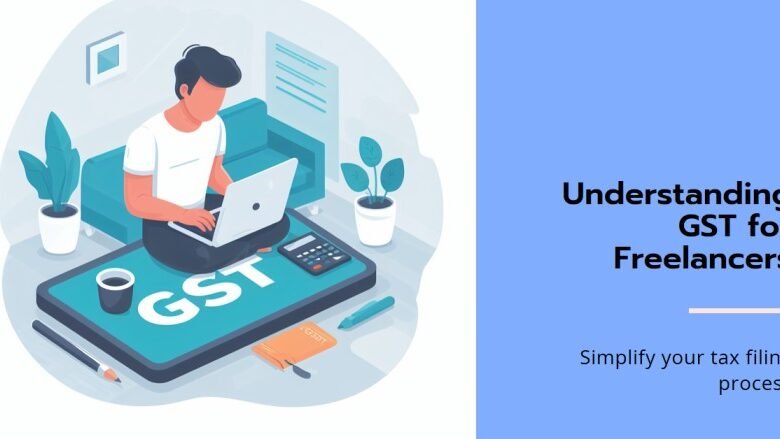
Introduction
In India, the products and Services Tax (GST) has taken the place of other indirect taxes like service tax, VAT, and excise duty. It is imposed on the delivery of products and services. Being a freelancer means that you work for yourself and are in charge of running your whole company.
The Goods and Services Tax is one area of your business that you must understand (GST).You can make sure you abide with the law and stay out of trouble by being aware of the laws and regulations pertaining to GST. In this Post we will discuss about the GST for freelancers.
What Is GST?
Goods and services tax is referred to as GST. The majority of products and services sold for domestic consumption are subject to the goods and services tax, an indirect value-added tax.
Although consumers pay the GST through GST Returns, the companies that offer the products and services are the ones that send the money to the government. Businesses engaged in the provision of goods and services in India are required to register for GST.
A business’s GST REGISTRATION may be suspended if it filed misleading information while seeking for registration or when submitting GST returns.
Are Freelancers Required to File a GST Return?
In India, you must register for Goods and Services Tax if you are a freelancer and your yearly revenue is more than Rs. 20 lakhs. The barrier is Rs. 10 lakhs if you’re offering your services in Jammu and Kashmir or the Northeastern states.
What is the freelancer’s GST rate?
For freelancers, the GST rate is 18%. However, many services are not subject to GST, including legal, medical, and educational services.
How Is GST Calculated?
The value of the supply is used to compute the goods and services tax. The price that the freelancer charges the client for the products or services rendered is known as the value of the supply.
You may use a GST calculator or multiply the amount you charge the client by 0.18 to determine the GST on your services. For instance, if you charge 10,000 for a job as a graphic designer, the GST on that would be 1,800. Therefore, you will bill the client a total of Rs. 11,800.
Which rules apply to freelancers under the GST?
In order to abide by the GST regulations, you must provide your clients with a GST invoice for the services you provide, keep track of every transaction pertaining to GST, pay the government the GST you collect from your clients, and FILE GST RETURNS on a regular basis.
You can claim an input tax credit (ITC) for the GST you paid on the goods and services you bought for your business as long as you’re a registered GST taxpayer. In certain instances, the customer has the responsibility of covering the GST, rather than the freelancer. We call this a reverse charge.
What Happens If You Don’t Register for GST?
If you fail to register for GST while having a yearly turnover that exceeds the threshold, you risk paying a penalty of up to 10% of the tax owed, or Rs. 10,000, whichever is higher. Lawsuits might also be taken against you.
Conclusion
In conclusion, freelancers have been greatly impacted by the implementation of the Goods and Services Tax (GST) in India. For this group of workers, the new tax system has created both possibilities and problems.
The greater GST compliance burden is one of the biggest issues that independent contractors must deal with. They have to file frequent returns, keep accurate records of their transactions, and register under the new system—all of which can be difficult and time-consuming.
Freelancers are expected to continue to be more and more crucial to the Indian economy as the nation develops and adjusts to the new tax structure.



